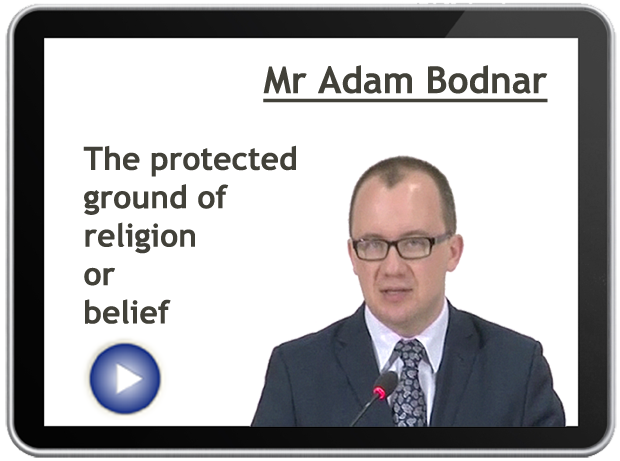Module 4:
The protected grounds of religion or belief
This module examines the protection from discrimination on the grounds of religion or belief.
An overview of the issues raised in this module is provided by Mr Adam Bodnar which highlights key issues relating discrimination on grounds of race, religion or belief and sexual orientation.

Under the Framework Directive protection from religious discrimination is only prohibited in relation to employment, occupations, vocational training and related fields. Unlike racial discrimination, religious discrimination is not prohibited in the sectors of the provision of goods and services, education and housing. However it is important to note that many Member States have gone beyond the minimum requirements of the Framework Directive in their national laws and extended the protection of this ground also in other fields of life.
There is no definition or religion or belief in the Framework Directive. However in relation to the Article 9 right to freedom of religion under the European Convention of Human Rights, the case law of the European Court of Human Rights has developed principles as to what sorts of religions and beliefs would be protected.
‘Religion’ means any religion and includes a lack of religion. The term 'religion' includes the more commonly recognised religions such as Buddhism, Christianity, Hinduism, Islam, Jainism, Judaism, Rastafarianism, Sikhism and Zoroastrianism. A religion need not be mainstream or well known to gain protection as a religion. However, it must have a clear structure and belief system.
‘Belief’ means any religious or philosophical belief and includes a lack of belief such as Humanism or Atheism.